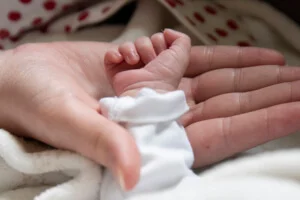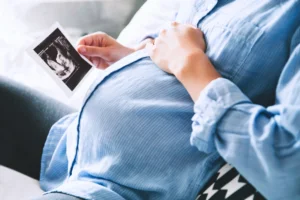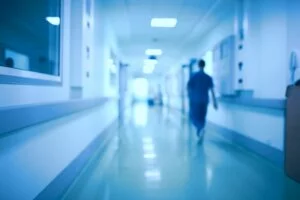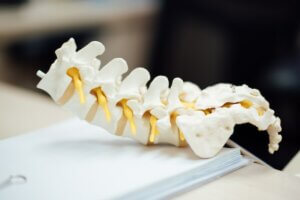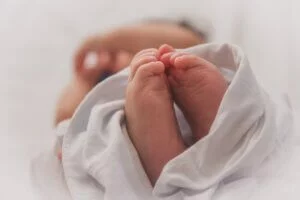New UK Supreme Court Ruling regarding Secondary Victims in Clinical Negligence Cases

Contact
Table of Contents
The Supreme Court has today, on the 11th January 2024, upheld the Court of Appeal’s order to dismiss the claims of secondary victims in Clinical Negligence cases in the matter known as Paul & Anor v Royal Wolverhampton NHS Trust [2024] UKSC 1. Secondary victims are considered to be those who are not subject directly to potentially negligent medical treatment but are witnesses to family members suffering injury or death as a consequence of it. In the three cases at issue before the Supreme Court, all claims were by family members for psychiatric illness caused by experiencing such events.
The Law Previously
Historically, in this area it has been the case that a person is unable to make a claim for any effect that the death or injury of another person has had on them. That said, case law has developed such that witnesses to an accident resulting from negligence have been permitted to make a claim for personal injury. The landmark case in this area is Alcock v Chief Constable of South Yorkshire [1991] UKHL 5, [1992] 1 AC 310, which arose from the Hillsborough disaster and specified five ‘control mechanisms’ – the criteria to be met for a successful claim by a secondary victim. Importantly, material to the Supreme Court’s decision today is the requirement for both physical and temporal proximity to the accident.
To date, the question of whether this principle extends to cases of medical negligence has neither been addressed in legislation nor by the Supreme Court. Master of the Rolls, Sir Geoffrey Vos, in the Court of Appeal stated that, whilst he “can quite see why secondary victims in these cases ought to be seen to be sufficiently proximate to the defendants to be allowed to recover damages for their psychiatric injury”, he was bound by the previous decision in Taylor v A Novo (UK) Ltd [2013] EWCA Civ 194. In that case it was held that, for such a claim by a secondary victim to succeed, the event and the negligence cannot be separate in time. It is this dichotomy that prompted the Master of the Rolls to leave the decision as to whether to depart from previous case law to the Supreme Court.
The Outcome
By a majority of six to one, the Supreme Court held that medical professionals owe a duty of care to their patients only and that witnessing the death of a close family member is not something doctors can be expected to prevent. Additionally, it was deemed that the claimant’s loved ones had not died in an ‘accident’. The Court gave varying definitions of the term but it can be encapsulated as a “discrete event in the ordinary sense of that word, meaning something which happens at a particular time, at a particular place, in a particular way”. It was further clarified that an accident is distinct from “medical crisis” such as occurred in these cases.
In effect, this ruling signifies an end to potential claims for psychiatric illness by secondary victims in clinical negligence cases. While this may bring clarity to the legal landscape, it also raises questions regarding the broader implications for victims of clinical negligence and their families. It could be argued that limiting the scope for secondary victims to claim compensation could hinder access to justice and overlook the profound emotional toll these incidents can have on the families involved.
The Wider Effect
While the decision has a restrictive impact on secondary victims in matters of clinical negligence, the scope for secondary victims of other accidents, such as a Road Traffic Accident, has potentially increased. The Court held that secondary victims in such circumstances no longer need to show that the incident was ‘objectively horrifying’, or that the injury suffered by the secondary victim need be caused by ‘sudden shock’. This leaves the requirements to be met as follows; presence at the time of the accident or its aftermath, witnessing the accident or its aftermath, and a close tie of love and affection with the primary victim.
In light of this development, should you continue to have queries regarding your potential claim as a secondary victim or are uncertain as to how this precedent may be applicable to you, please contact us.
Share this article
“Osbornes handles a wide range of high-value and complex clinical negligence cases, with particular expertise in birth injury, delayed cancer diagnosis, spinal injury, and fatal claims.”
“Osbornes Law is an established firm which handles a breadth of complex and high-value clinical negligence matters.”
Contact a Clinical Negligence Solicitor Today
Call us 0207 485 8811
Email us Send us an email and we’ll get back to you
Osbornes has a skilled team of solicitors advising clients on a wide range of clinical negligence matters.
Hard working, approachable, good knowledge of clinical negligence and clients’ specific conditions
A joy to work with and always 100% client focused at all times.
The clinical negligence team at Osbornes is much lauded for its ability to ‘represent the diverse range of London-based clients
Stephanie has developed a particularly strong reputation for her handling of birth injury claims, as well as cases concerning surgical negligence and delays in surgery.
"An excellent firm which achieves fantastic outcomes for clients."
"Stephanie Prior takes on complex cases and gets excellent results. She has a background in medicine which serves her clients well and is a realistic but tough litigator."
"Stephanie Prior is hugely dedicated, adored by her clients, tenacious, efficient and extremely knowledgeable."
"Stephanie Prior is very good with troubled clients and is easily able to make them feel at ease."
"Stephanie shows sensitivity and deals with things in an understanding way."
Osbornes provides a very intimate and personal client service which is increasingly rare in this sector.
The lawyers in the team are highly experienced and will drive cases very hard on behalf of their clients.
"Stephanie Prior has a realistic attitude to the complexities of the cases. She wins the trust of her clients and goes the extra mile to ensure they get the best outcomes."
"Stephanie Prior... manages a varied caseload, including obstetric claims, child and adult brain injury cases and fatal and non-fatal spinal cord injury cases."
"Stephanie is experienced, knowledgeable of all aspects of clinical negligence work, and strategic in running cases."
"The team were extremely professional in putting my needs first. There was a joined-up approach to catering for the client, and all lawyers involved were briefed and constructive."
Stephanie Prior is always very professional and kind. Highly recommended.
Quite simply excellent, with a highly competent and well-rounded team. They understand complex medical litigation and have been our lifesavers, and we will always owe them our immense gratitude.
More from JodiVIEW ALL
- 19.2.2026
Supreme Court Allows Children to Claim Lost Years...
Landmark Supreme Court ruling: children can now claim lost years compensation for medical negligence On 18 February 2026 judgment was handed down...
Read more - 3.12.2025
Liability Secured for Child with Cerebral Palsy
Full admissions of liability secured on behalf of child with quadriplegic cerebral palsy Jodi Newton, Partner in our Medical Negligence...
Read more - 30.10.2025
Addenbrooke’s Hospital Complaints
Review finds harm to children by surgeon at Addenbrooke’s Hospital An independent review by Cambridge University Hospitals NHS Foundation...
Read more - 27.8.2025
HSSIB Review Exposes NHS Maternity Failures
Patient safety body HSSIB publishes exploratory review of maternity and neonatal services As Head of Paediatric and Birth Negligence cases...
Read more - 10.7.2025
£700K Settlement for Crohn’s Disease Negligence
Negligent delay in diagnosing Crohn’s disease leads to £700K settlement Jodi Newton, Partner, was instructed in a case against...
Read more - 12.5.2025
Complaints Against Suspended Surgeon Ms Kuldeep Stohr
Ms Kuldeep Stohr, orthopaedic surgeon at Addenbrooke’s Hospital suspended In February 2025, Cambridge University Hospitals NHS Foundation Trust (CUH) confirmed...
Read more - 6.5.2025
Six-Figure Settlement for Negligent C-Section Delivery
Osbornes secures a six-figure settlement following a negligent caesarean section delivery Jodi Newton, Partner and head of our Obstetric and...
Read more - 14.10.2024
Multi-Million Settlement in Cerebral Palsy Negligence Case
Judge awards multi-million settlement in cerebral palsy medical negligence claim Jodi Newton, Partner and specialist medical negligence lawyer at Osbornes...
Read more - 12.9.2024
Great Ormond Street Hospital Negligence & How to Claim
Review of negligence at Great Ormond Street Hospital At Osbornes Law, we’ve supported families through some of the most...
Read more - 29.8.2024
AB v Central London Community Healthcare NHS Trust
Background Our client, AB, had been using the Nexplanon contraceptive device for 6 years. She had a Nexplanon device inserted into...
Read more - 30.7.2024
What Is the Role Of a Physician Associate?
What does the Position of Physician Associate Mean for the NHS? There are many different jobs within the NHS, each...
Read more - 9.5.2024
Claim Against Royal Free London NHS Foundation Trust...
Client obtains settlement after being victim of a surgical negligence Jodi Newton, Partner in our Clinical Negligence department, recently settled...
Read more - 11.1.2024
Secondary Victim Claims
Secondary victims in clinical negligence cases What is a secondary victim in clinical negligence cases? Most compensation claims are concerned...
Read more - 12.12.2023
NHS Compensation Payouts Guide
What Are NHS Compensation Payouts? In the UK, the National Health Service delivers the vast majority of healthcare services. When...
Read more - 21.9.2023
Large Compensation for Delayed Laryngeal Cancer Diagnosis
Actress receives financial award after life-changing missed cancer diagnosis. Jodi Newton acted for a client who was belatedly diagnosed with...
Read more - 21.9.2023
Delayed cervical cancer diagnosis client story
Introduction Jodi Newton acted for a woman who died following a delayed cervical cancer diagnosis. The deceased could have been...
Read more - 19.9.2023
Appendicitis Compensation Claim
Appendicitis misdiagnosis case settles for 5-figure sum Osbornes Law were instructed in a medical negligence claim against Bedfordshire Hospitals NHS...
Read more - 19.9.2023
Spinal Fracture Case Settles for 6-figure Sum
Spinal Fractures following cessation of Denosumab injection Case Overview Osbornes Law were instructed in a spinal injury claim against Mid...
Read more - 31.8.2023
Can you sue the NHS for waiting times?
The NHS is facing an unprecedented challenge with 7.47 million people waiting for routine treatments. This crisis impacts everyone, from those...
Read more - 31.8.2023
Hyponatraemia – Symptoms, Causes & Negligence
What is hyponatraemia? Hyponatraemia is a condition where sodium levels fall below a certain level, which can be dangerous. All...
Read more - 10.8.2023
Ambulance Delays Affecting Rapid Patient Treatment
Failure to Meet Ambulance Response Targets In 2017, the Secretary of State for Health accepted the new ambulance performance standards recommended...
Read more - 1.8.2023
Bowel Ischaemia Fatality – Client Story
Jodi Newton, a Partner in the Clinical Negligence Department at Osbornes Law, has recently settled a long running fatal medical...
Read more - 9.6.2023
Early Notification Scheme – is it helping or failing...
What is the Early Notification Scheme? The NHS Early Notification Scheme (“ENS”) has reached its sixth anniversary. Established in April 2017,...
Read more - 23.3.2023
Private Pregnancy Scans and Substandard Care
In the news, it has been reported that private clinics that offer pregnancy scans to women are not meeting the...
Read more
